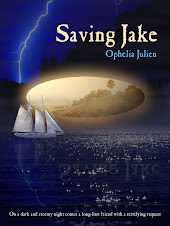Normally, I try to address supernatural things in this blog: ghosts, cryptids/cryptozoology, ghosts, unexplained events, ghosts, and ghosts. But as I work on book 3 of the Bridgeton Park Cemetery series, I started thinking about opening lines for books. This is a common topic among writers and is featured (or should be) in writing classes because a story opening, which may be one line or an entire paragraph, is what is used to grab your reader by the throat so that they keep on reading. It is also to grab editors and agents by the throat for those working authors who submit their manuscripts traditionally.
Naturally, I started thinking about my own story openings. Here they are, along with the title of the work they open:
Mary Beth is dead. There won't be any more dreams. (Dead of Summer)
The madness started in September, and to tell you truth, I hope it hasn't ended yet. (Saving Jake)
"Okay, then," I said. "First question. Can a ghost follow you home?" (Hunting Spirits)
The four-year old girl looked up and saw Uncle Tee stepping through the front door and coming toward her, her mother a little behind him - AND - No one knew exactly who started the Thursday night ghost stories, or when. (Haunted)
Michael Penfield awoke to a presence in his room. (Dead Voices)
The first two openings, for Dead of Summer and Saving Jake, were enough to get my foot in the door with an editor. Teresa Basile, who edited Saving Jake, is an unusually generous editor in that if she likes an opening line, she'll read the entire first page of a manuscript. I hear most editors will read the first paragraph. If the opening line doesn't cut it, well, so long, Charlie. Getting published can be brutal!
But I digress. Opening lines set the tone of the book and sometimes can encapsulate a large part, if not all, of the story. Next time you read a book, go back and reread the opening and see what you think of it, now that you know where the writer went. I'm partial to Stephen King when it comes to this: "Once upon a time, a monster came to Castle Rock" or "Jack Torrance thought: Officious little prick" or even "Here is what happened."
When I teach writing classes, I always spend some time having students come up with opening lines, and then we share them. Invariably, we always hear at least three or four of them where we wish we knew the rest of the story. It's a good exercise but a cruel one, if you want to know what happens next. In situations like that, even the author can't usually answer that.
On the other hand, endings are a completely different animal. I'm beginning to think that a line that is good for starting a story might be good for ending it, as well. When you take an opening and end the book with it, you leave the reader wanting more. Sometimes you might be writing a series, but maybe not. There are good and satisfactory endings like "They lived happily ever after" or Dumas" "...the count just told us that all human wisdom was contained in these two words: Wait and hope" from the Count of Monte Cristo, or Gaiman's "But between now and then, there was Life; and Bod walked into it with his eyes and his heart wide open" from The Graveyard Book. Great endings, all of them, that put a final cap on the story and leave the reader with a contented sigh.
Still, there is a part of me that enjoys endings that read like openings. I tried that with Haunted and for my trouble was told in no uncertain terms that my ending was really the start of the next book. I never saw it that way, but hey, if intelligent readers did, then who am I to argue? I'll write another book. Just to clarify things for myself, though, I put an ending on Dead Voices that made it stunningly obvious that there was another book on the way. I want my readers to come back!
But indulge me for just a second and go back up to the list of my openings. Reread them and pretend they are each the last lines of a novel. It's probably just me, but I think all of them would make really stellar endings. Really. It would invite the reader to keep going with the story in his or her own mind. I'm a writer. I like the idea of my characters taking on a life in someone else's thoughts. And I can't help thinking that ending with a beginning is a hell of a way to do exactly that.







